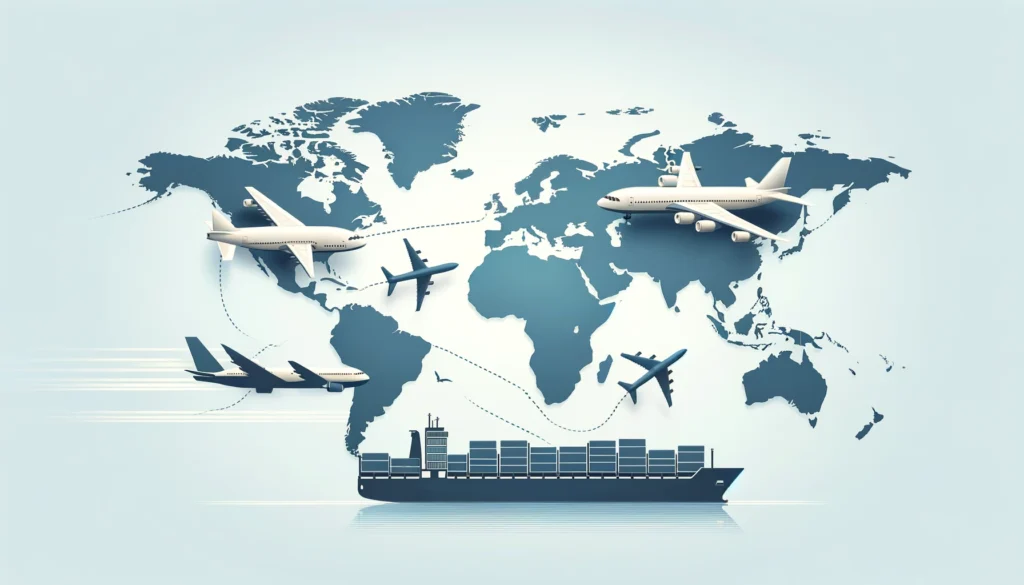According to The Information, Amazon had a plan to continue its expansion through the world in 2023, looking for sizable areas. But these plans have not taken place, which is pretty rare in Amazon, as from 2016 to 2022, it opened at least one international marketplace every year.
This choice of freezing the geographic expansion of Amazon does not match sometimes with the ecommerce companies’ goals when they are aiming to scale their operations, exploring new geographic horizons.
At Recontour, we believe that geographical expansion is a key growth lever for our business. After the acquisition of five of our brands, which were predominantly selling in the US market, we analyzed the best strategic movement for Recontour in order to keep growing and consolidate the company.

We understood that expanding into new territories enhances our brands portfolio presence and recognition and gives us some advantages if we were moving fast enough. But the main question was: which geography was in our radar? A populated one? A culturally alike? We needed to find answers. Was it better to be a big fish in a small pond or a small fish in a big pond?
Identifying the Best Geographies for Amazon E-commerce Expansion
Selecting the right geographies for expansion is a critical decision that can determine the success or failure of an e-commerce company’s global strategy. The criteria for selection often include market size, customer purchasing power, internet penetration, Amazon Prime subscription costs and the ease of doing business. Based on these criteria, several regions emerged as particularly promising for Amazon e-commerce companies like us:
Canada
Canada represented a prime market for Amazon e-commerce expansion due to its robust economy, high internet penetration rates, and a consumer base familiar with and trusting of the Amazon brand. Amazon operates an established marketplace in Canada (Amazon.ca), offering a full range of services including Prime, Marketplace, and AWS, which provides a strong foundation for new and existing sellers to tap into the Canadian e-commerce ecosystem. The country’s proximity to the United States also simplified logistics and supply chain management for North American sellers like us, making it an attractive option for Recontour’s geographic expansion.
Europe
Europe offered a diverse and sophisticated e-commerce landscape, with several countries hosting Amazon marketplaces. This region combined developed economies with high purchasing power and a keen interest in e-commerce, making it an attractive target for expansion. Key considerations include:
- United Kingdom: Despite Brexit, the UK remains a significant e-commerce market with a mature Amazon ecosystem (Amazon.co.uk). The English-speaking population and similar consumer behaviors to the US market make it an appealing first step for US-based sellers looking to expand into Europe.
- Germany and France: As two of Europe’s largest economies, Germany (Amazon.de) and France (Amazon.fr) offered substantial customer bases eager for a diverse range of products. These countries had well-established Amazon marketplaces, and their strategic location in Europe facilitated easier logistics across the continent.
- Italy and Spain: With growing e-commerce sectors, Italy (Amazon.it) and Spain (Amazon.es) represented emerging opportunities within the European market. These countries had shown a rapid adoption of online shopping, bolstered by Amazon’s growing presence.
As of March 2024, we, at Recontour, are selling our products both in the US, Canada, Mexico and the EU; and in Q2 2024, we are planning to launch in the UK.
When we expanded into Canada, Mexico and the EU, we staggered our approach, starting with a reduced number of SKUs to assess product-market fit and our ability to sell on the new market. Once we proved these points, we went ahead launching more SKUs and brands.

Steps for Successful Geographic Expansion
Expanding into new markets is a complex process that requires strategic planning and execution, as we have experienced at Recontour. These steps are crucial for a successful geographic expansion:
1. Market Research and Analysis
Understanding the local market is paramount. This involves analyzing cultural preferences, consumer behavior, local competitors, pricing and potential legal and logistical challenges. Referring to pricing, you must take into account that the landed cost of the product is likely to be different from the one of your core market, due to the differences in import duties, taxes, logistic partners, etc. That is why doing a thorough feasibility study is a key part of the process.
2. Local Regulations and Compliance
Navigating the regulatory landscape is critical. Each market has its own set of laws and regulations regarding e-commerce, from data protection to consumer rights. A strategic approach involves thorough legal research and possibly partnering with local experts to ensure compliance.
3. Localization Strategy
Localization goes beyond translation; it’s about adapting your product offerings, marketing, customer service, and overall user experience to meet local tastes and preferences.
4. Logistics and Supply Chain Management
Efficient logistics and supply chain strategies are essential for meeting customer expectations in new markets. This includes considerations for local warehousing, shipping options, and handling returns. Strategic partnerships can play a key role in navigating these complexities.
5. Cultural Barriers
Each market possesses its unique culture and business practices. The variance in cultural norms can affect the reception of a startup’s offerings and the formation of business connections. Furthermore, language obstacles may impede clear communication with customers, suppliers, and partners in the intended market.
Geographic expansion is a strategic imperative for Amazon e-commerce companies like ours which are looking to thrive in the global marketplace. That is why expanding to new geographies is going to be a key priority for us in the next few months.




